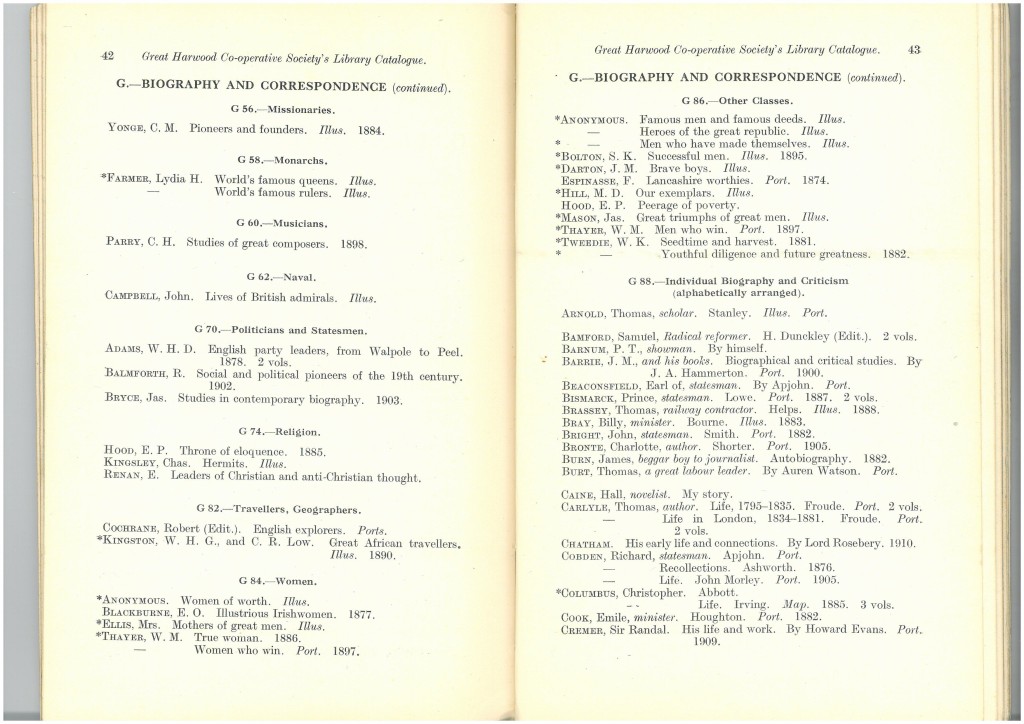A report on a talk given at the Library on 25 September as part of our ‘Invisible Histories’ series:
The presentation Ill Fares the Land? was based on research carried out at the WCML and looked at some attempts by working people to take control over food growing and improve the quality of their diet. The background was that, following the Repeal of the Corn Laws, British agriculture went into steep decline and the country relied upon imported food. The talk also looked at the fact that severe famine in Ireland became part of the debate about the ‘benefits’ of free trade, and at how English non-intervention was rationalised as being part of the necessary process of the operation of a free market.
 Because free trade was seen to be advantageous to the commerce of the country, and food was the ‘currency’ that overseas countries used to pay for manufactured goods, the decline in agriculture was seen as necessary.
Because free trade was seen to be advantageous to the commerce of the country, and food was the ‘currency’ that overseas countries used to pay for manufactured goods, the decline in agriculture was seen as necessary.
The result was that by 1880 British farming was in a severe depression and supplying only 30% of national food needs. Many radicals and socialists put forward solutions – including Land Nationalisation – but tended to have visions of a golden age of British agriculture before the advent of the capitalist era. Some even considered that the country was more equal and prosperous when it was a predominantly feudal and agricultural nation. One of the main concerns, even for socialists, was that not having a large number of workers on the land led to decline in the ‘national stock’ and would weaken the ability of this country to remain at the head of a large Empire.
The work of Peter Kropotkin challenged these views of the past put forward by H.M. Hyndman and Robert Blatchford and envisaged a future in which industry and agriculture would work alongside each other using, for example, waste heat to power large greenhouses. Food production would be boosted by the use of technology but under the control of local communities.
In that climate, working people in both the 1890s and the 1900s attempted to create situations in which they took control of food production on a local basis. Examples in Bradford and Newcastle were explored in the talk, and although most of these (and other) attempts failed to bring about lasting solutions they did often engender change in, for example, Co-operative Societies.
The British Government made a considered decision in 1905 that being dependent upon imported food posed no strategic risk and, indeed, to even think about such vulnerability was to doubt the power of the Navy. It was not until 1917, with the War about to enter its final year, that limited steps were taken to increase domestic food production. The work of Sylvia Pankhurst detailed much of the suffering that food shortages and substantial price increases caused, and change only took place in the light of industrial unrest at home and poor troop morale abroad. The Russian Revolution, and risings across Europe, emphasised the potential power of working people.
After the First World War promises were made that dependency upon foreign food would never be replicated and the Corn Production Act was passed. However, this was repealed after only six months and the interwar period saw mainly bureaucratic Government changes (such as Marketing Boards) and the growth of large agricultural, chemical and retailing businesses. In 1939, by the end of the period covered by this talk, another war was imminent but domestic food production was only a little higher than it had been in 1880. Neither had there been a significant improvement in the diet of most working class people.
All the issues raised by working people who set up farm colonies and co-operatives are relevant today and the talk concluded by looking at the World Development Movement’s Six Pillars of Food Sovereignty. Briefly, these are
- The right for people to have healthy food
- Valuing food providers
- Localising food systems
- Putting control locally
- Building knowledge and skills
- Working with nature.
It was noted that the question of food sovereignty was due to be discussed on Monday September 30th at the Unicorn Organic Grocery, Manchester. Details available from
http://www.feedingmanchester.org.uk/civicrm/event/info?reset=1&id=3687
For a broader understanding of Food Sovereignty head to
http://www.wdm.org.uk/what-food-sovereignty
David Hargreaves, WCML volunteer and presenter of the talk
